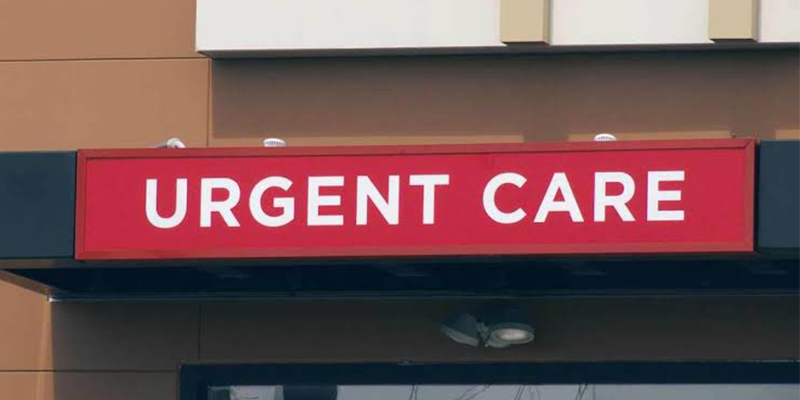

Decoding the healthcare system can be one of the last things you want to do when in the throes of illness or injury. To help you, here is a toolkit on the differences between scheduled appointments and urgent care to prepare you the next time something doesn’t go according to plan.

Regular appointments through your primary care provider are ideal for non-emergencies, preventative care, and regular checkups. Here is when you would get a diagnosis for a chronic illness, education on your conditions, counseling, and specialist referrals. Your primary care visits are where you would also get vaccinations and non-urgent testing. Other reasons for a visit might include physicals and screenings required by a school, camp, sports, or an employer.
Going to your primary care provider for non-emergencies is best because they will already have your health history on hand. They know you and can quickly diagnose and treat any issue you have. Most of the time patients spend in walk-in clinics, urgent care, or ER situations involves the health care providers getting up to speed on your health status.

The main reason to go to urgent care would be for an injury or ailment that requires treatment within 24 hours but is not a medical emergency, or your primary care clinic is not available for a same-day appointment. Urgent care wait times are shorter than emergency rooms, and visits are cheaper. If the urgent care provider decides that emergency or specialized care is needed, they can arrange transportation to the emergency room.
Your primary care provider can provide many urgent care services, so check with your primary care provider first to see if they have a same-day appointment. Most primary care providers are only open during regular business hours, but urgent care clinics are usually available at night and on weekends.

Some health concerns cannot wait and warrant a trip to the emergency room. For this, it’s best to arrange transportation. While the cost of an ambulance is steep, it is essential to note that EMTs can start life-saving care before even reaching the emergency room. Some reasons to go to the ER include:
When looking at lists of ailments or injuries, a subset of occurrences aren’t urgent enough for the emergency room but cannot wait for a scheduled appointment. Here are the top six reasons to visit urgent care.
1. Elemental exposure
When being adventurous, extreme heat or cold exposure is always risky. Urgent care can provide aid for frostbite, heat exhaustion, or burns. Severe burns can come from more than just fire, including exposure to harsh chemicals.
2. Broken bones, sprains, strains, and aches
Urgent Care centers can treat a broken bone, fracture, or sprain without blood or the broken bone protruding through the skin. There, they can take x-rays to determine the severity of your injury. They can also arrange to get you to the ER if immediate corrective surgery is needed. In addition, strains or aches caused by work, sports, or just moving around the house can cause discomfort and affect the quality of life if not treated promptly.
3. Bug bites, stings, and infestations
While some bug bites can be treated at home, in the case of multiple stings, concerning bites, or an allergy to either, a trip to urgent care might be the way to go. Urgent care can also treat lice effectively.
4. Eyes, ears, nose, and throat
Our sense organs are some of our most important and most delicate. Sore throats or earaches can be signs of opportunistic infections or simply excess fluid or inflammation. Unexpected eye discomfort or a nose injury should warrant an urgent visit; however, you should discuss persistent illnesses or non-healing injuries with your primary care provider.
5. Allergies, shortness of breath, rashes, and itchiness
Skin discomfort may arise if someone runs through a patch of poison oak or gets in an over-chlorinated pool. Allergies that are non-life-threatening and discomforting can cause inflammation and shortness of breath. Asthma and anxiety can also cause shortness of breath, and medical attention is needed — especially if this is a first-time experience. Emergency care might be the best route if there is a blockage or a major respiratory issue.
6. Cuts, bumps, and scrapes
Cuts and scrapes that aren’t severely bleeding but might need stitches are a good candidate for urgent care. Bumps that aren’t from severely broken bones or related to loss of consciousness require urgent care.
Your health is essential and keeping your body healthy and safe requires a professional support team. Overall, ailments that can wait, and preventive appointments, can be scheduled with a primary care provider. In addition, tests and immunizations can be handled by either your primary care provider or a walk-in clinic.
Walk-in clinics can treat a handful of conditions and are helpful for people on the go. However, urgent care is there for you when situations become more serious. When the injury or ailment is dire, you should take care of it at the emergency room.
At Care Access Clinic, we serve patients in Babylon, New York, and greater Suffolk and Nassau counties. We offer both urgent care and regular healthcare services. If you’d like to learn more, we welcome you to call us at (631) 482-9880 or schedule a consultation online.